Postpartum depression – Help and treatment
The baby is finally born: The circle of acquaintances rejoices, you yourself are floating on cloud nine and almost bursting with pride and happiness, right? The postpartum period doesn’t have to look like that. The postpartum period often doesn’t look like that – at least not only. Contrary to the common impression that parents are always enveloped in positive feelings during the postpartum period, it’s also completely normal if that’s not the case. Sadness, fatigue and even overwhelm can be normal in the post-pregnancy period. However, when these symptoms indicate postnatal depression and how you can deal with it, you will learn in this article.
What is postpartum depression?
Postpartum depression is a depressive disorder that occurs in connection with the birth of a child. Because this disorder occurs in the period after birth, it is also called postnatal or postpartum depression. “Postpartum” means something like “after the birth.”
With all the information you get here, it is important that you realize that sufferers are not to blame – that you are not to blame. The time after birth is a challenging time for all parents. Especially for mothers, the birth of the child is accompanied by many physical and emotional changes that can be very stressful and exhausting.
What symptoms indicate postpartum depression?
Postnatal depression may manifest differently from woman to woman. Not all symptoms have to occur and not all symptoms have to be the same. Postpartum depression places a heavy burden on the everyday lives of those affected, as they are often unable to do everyday things due to great exhaustion and dejection.
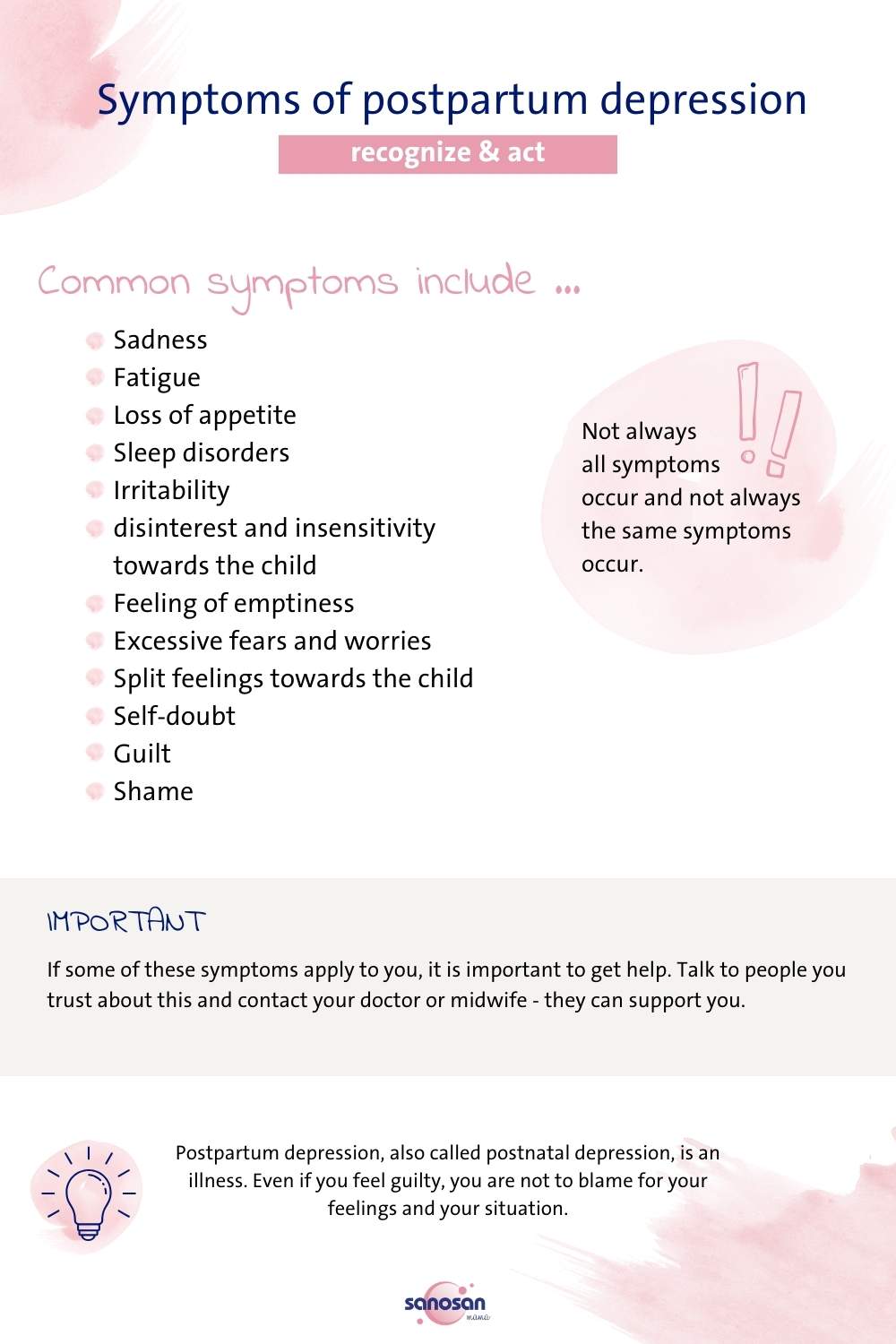
Many of these symptoms are the same as in other depressive disorders. In addition, there are feelings that relate to the child. In addition to split feelings or disinterest in the child, negative feelings about the newborn can also occur. This is usually associated with great feelings of shame and guilt for those affected. It is important to emphasize that you are not to blame – it is an illness. Affected persons cannot be held responsible for symptoms, whether physical or emotional.
When does postnatal depression occur and how long does it last?
In most cases, the first symptoms of postnatal depression appear about four to six weeks after delivery, during the postpartum period. However, postnatal depression may also appear some time later after birth. Normally, the period in which postpartum depression first becomes noticeable is up to one year after birth.
How long postpartum depression lasts can vary and differs from person to person. Untreated postpartum depression lasts about four to six months. However, it can last for more than a year or, in rare cases, even become chronic. It is therefore crucial to seek professional help and treat the condition. The outlook with appropriate treatment is very good.
How common is postnatal depression?
Since this topic is still very taboo, it is often not talked about very openly (between mothers). It is therefore all the more important that you know that you are not alone. Between 10 to 15% of women are affected by postpartum depression after giving birth. Especially after the birth of the first child, postpartum depression is not uncommon. In addition, women who have previously suffered from depression or have already been affected by pregnancy depression are at increased risk for postnatal depression.
Besides, it should be known that not only women and mothers can be affected by postpartum depression. This is usually the case, but nevertheless fathers and men can also suffer from postnatal depression.
What are causes of postnatal depression?
After the birth, parents are under enormous pressure. Life is turned upside down not only because you have to find completely new routines and are in the process of getting to know a little person anew. The new roles as mother and father can also demand a lot from new parents. The reasons why postnatal depression can occur are as individual as the situation and the people themselves.
Various causes that may have an impact are as follows:
- Expectations and role models
Societal norms and role models of a perfect and self-sacrificing mother can put tremendous pressure on women. Especially in the early days, when you are still getting to know yourself as a mom, this additional external pressure can lead to feelings of doubt, anxiety or overwhelm, contributing to the development of postpartum depression. - Support and social environment
After the birth, everyone wants to get to know and care for the new family member. It is also important not to forget the parents, especially the mother. Whether emotional or physical, support is more important than ever in the postpartum period. Lack of support and attention from the partner or even the close social environment, can contribute to the development of postnatal depression. - Physical exhaustion
After birth, the body changes again in a very short time. The hormones have to settle down again and the body is still busy recovering and healing from the birth. Exhaustion and fatigue also play a crucial role in the development of postpartum depression. - Psychological influences
Emotionally, the postpartum period is also a stressful time. The new parents have to find their way in a completely new everyday life, are confronted with new roles and, in some cases, altered self-images – this can be very grueling. Women who have experienced complications or traumatic birth experiences may also have an increased risk of developing postpartum depression.
 IMPORTANT: Several factors are always involved in the development of postnatal depression. The loss of a close caregiver or other factors can also have an influence on the development.
IMPORTANT: Several factors are always involved in the development of postnatal depression. The loss of a close caregiver or other factors can also have an influence on the development.
Treatment and help: what to do for postpartum depression?
Postpartum depression is a mental illness – treatment is therefore absolutely necessary. What this treatment looks like varies and depends on how severe the symptoms are and how much of a burden they are for the person affected. If postpartum depression is recognized early or is more mild, partial support from the social environment can already have a major positive impact. If, on the other hand, it is a more severe postpartum depression, professional treatment is necessary to help those affected.
If you have the feeling that you could be affected by postpartum depression, it is important to talk to someone you trust. This person can support you in going to your doctor or midwife afterwards. Of course, you can also go directly to a doctor if you feel more comfortable doing so. However, it is important that you make up your mind to take this step in order to determine and receive the help and treatment that is right for you.

IMPORTANT: Postpartum depression is curable and the prognosis is very good with appropriate treatment. It also usually does not affect the relationship with the newborn.
How can family members help with postpartum depression?
In the case of mild postnatal depression, the close social environment such as friends or family can also be a great help. In some cases, it is sufficient to discuss possible triggers in one or two meetings with a trained doctor and to provide information on how those affected can recover themselves and, above all, with the support of their trusted friends.
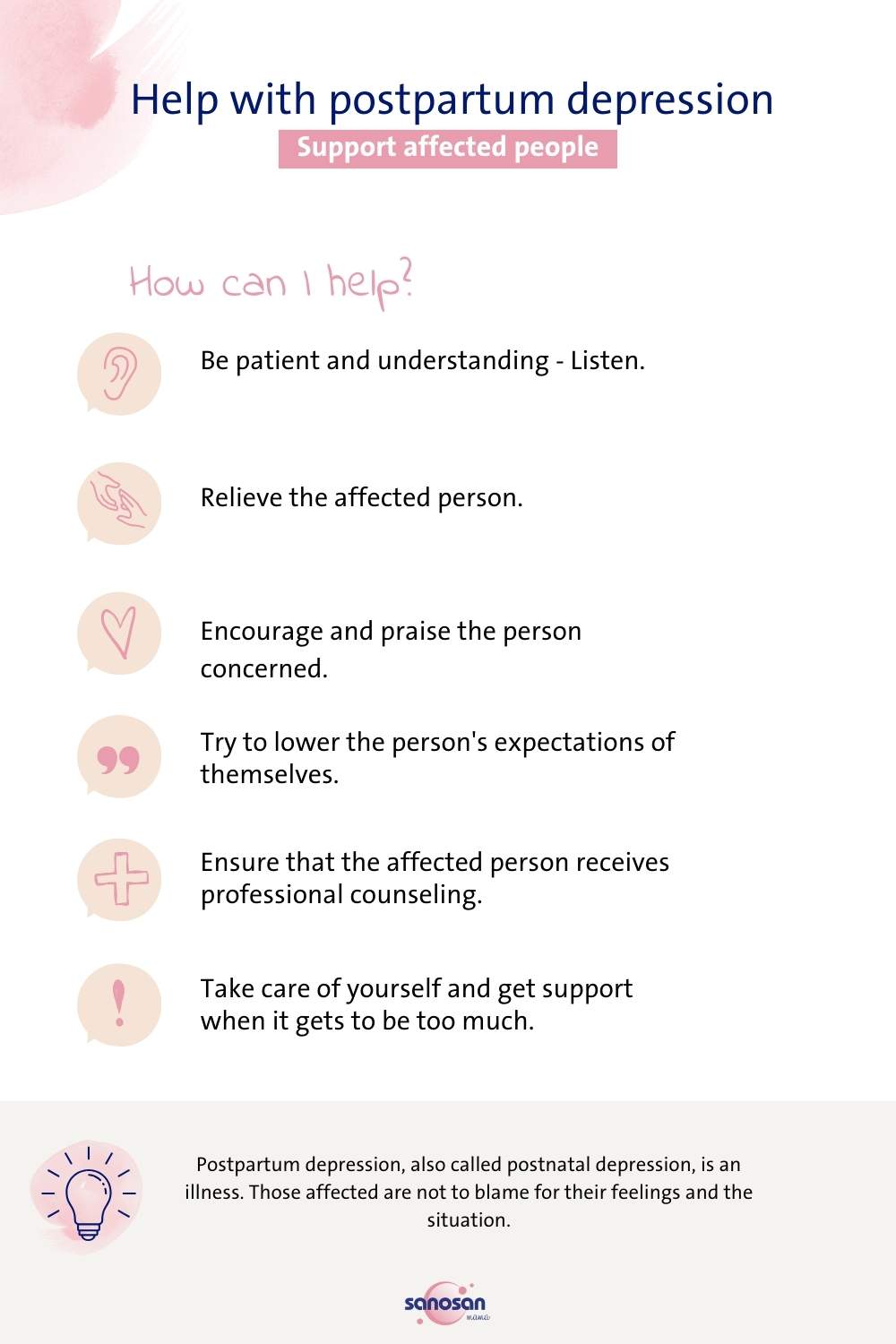
As a family member or relative, it is very important that you signal your support and give the affected person the best possible relief. Encourage and praise the person affected and try to help them reduce the demands they make on themselves. Above all, be patient and understanding! It is also important that you encourage the affected person to seek professional help – this is crucial.
 And last but not least: Think of yourself, too! If it’s too much, look for help and support among your acquaintances, who can take over various tasks and thus provide relief.
And last but not least: Think of yourself, too! If it’s too much, look for help and support among your acquaintances, who can take over various tasks and thus provide relief.
Professional treatment for postpartum depression
If the symptoms of postnatal depression are more severe, medical treatment may be necessary. As with other forms of depression, treatment may include psychotherapy or medication. However, these require a prescription, so it is imperative that the treatment plan here be discussed with a health care professional. However, even in severe cases of postpartum depression, support from the close social environment is essential.
Can you prevent postpartum depression?
Postpartum depression cannot be prevented. However, you don’t have to be afraid of it either. Look positively at the time after the birth and try to prepare for it already during pregnancy. For example, you can think about how you can build up a network of helpers during pregnancy and create resources that can provide relief.
Lastly, don’t suffer in silence. Your feelings are okay and you are worth feeling good about. Even if you are currently feeling guilt and shame: You are not to blame for the situation. There are many factors that play a role in the development of postpartum depression that are out of your control. The first priority now is that you get well and feel better!
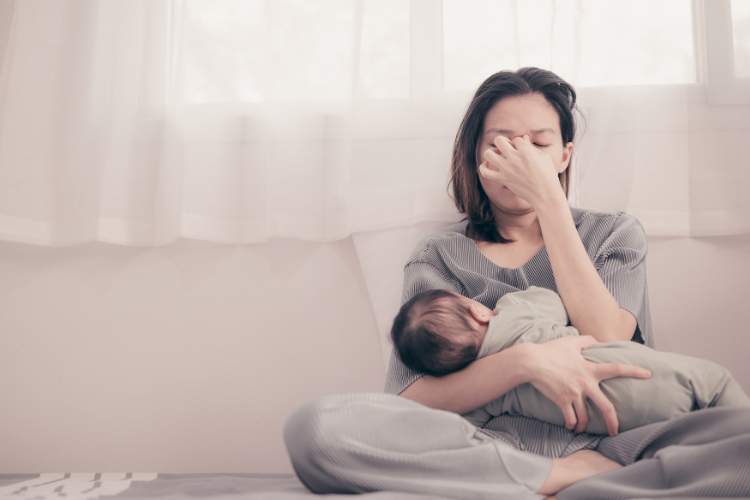
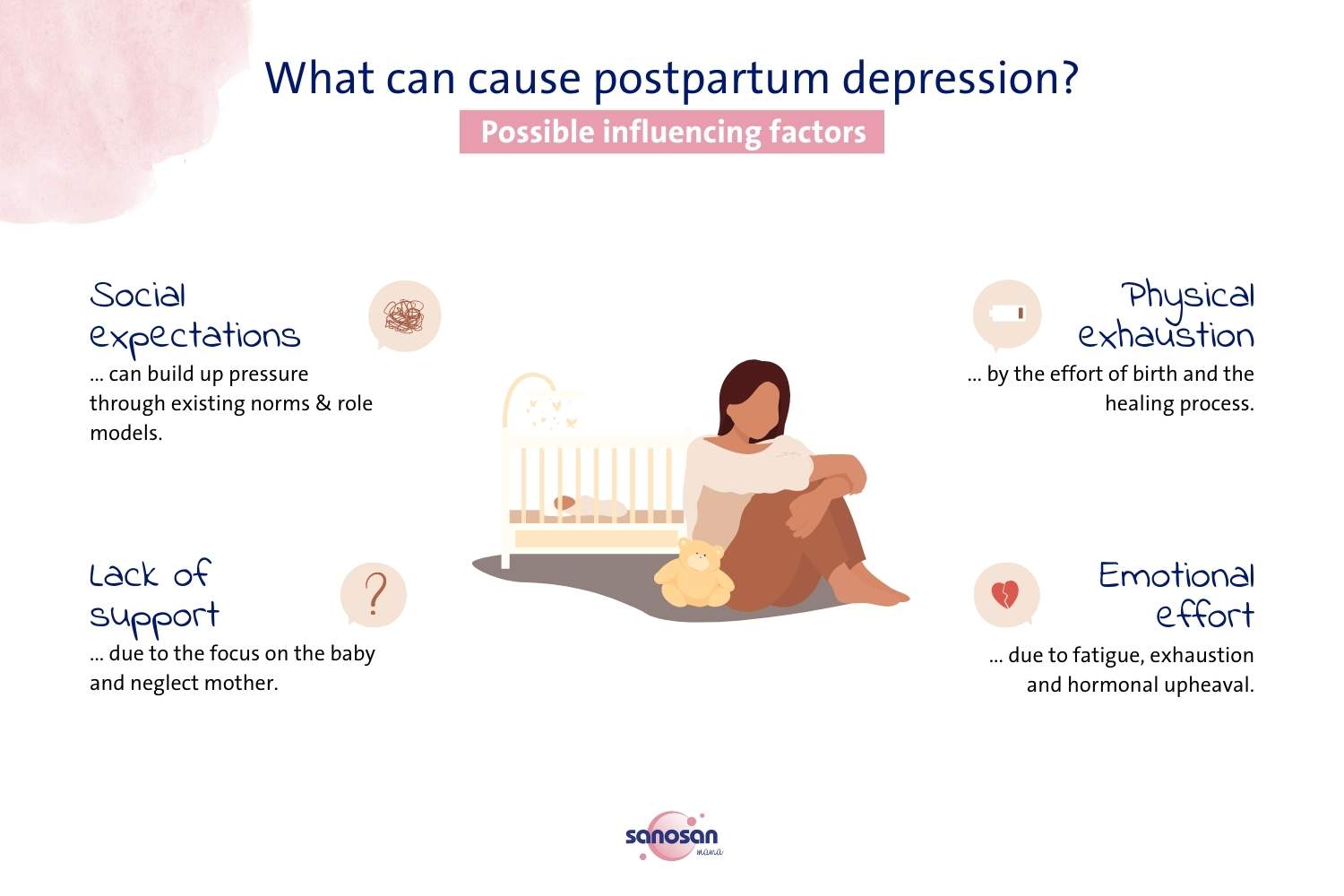
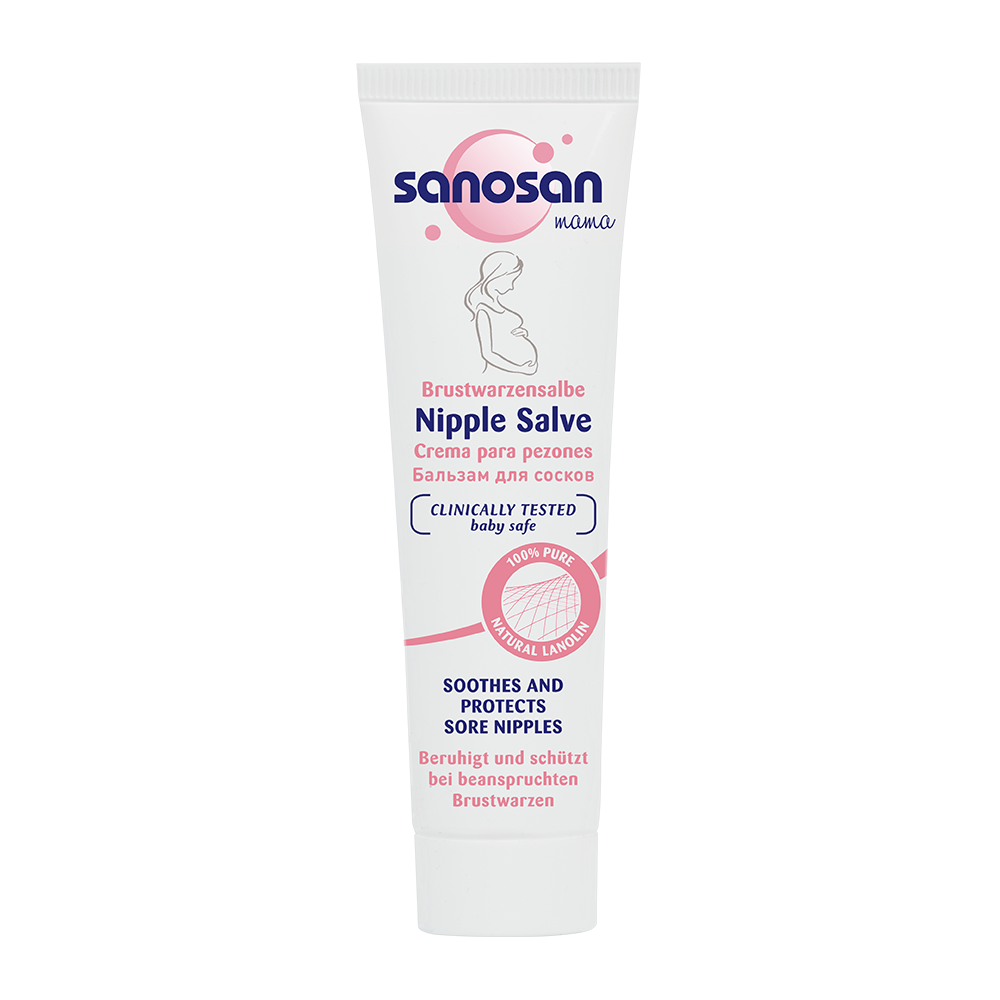
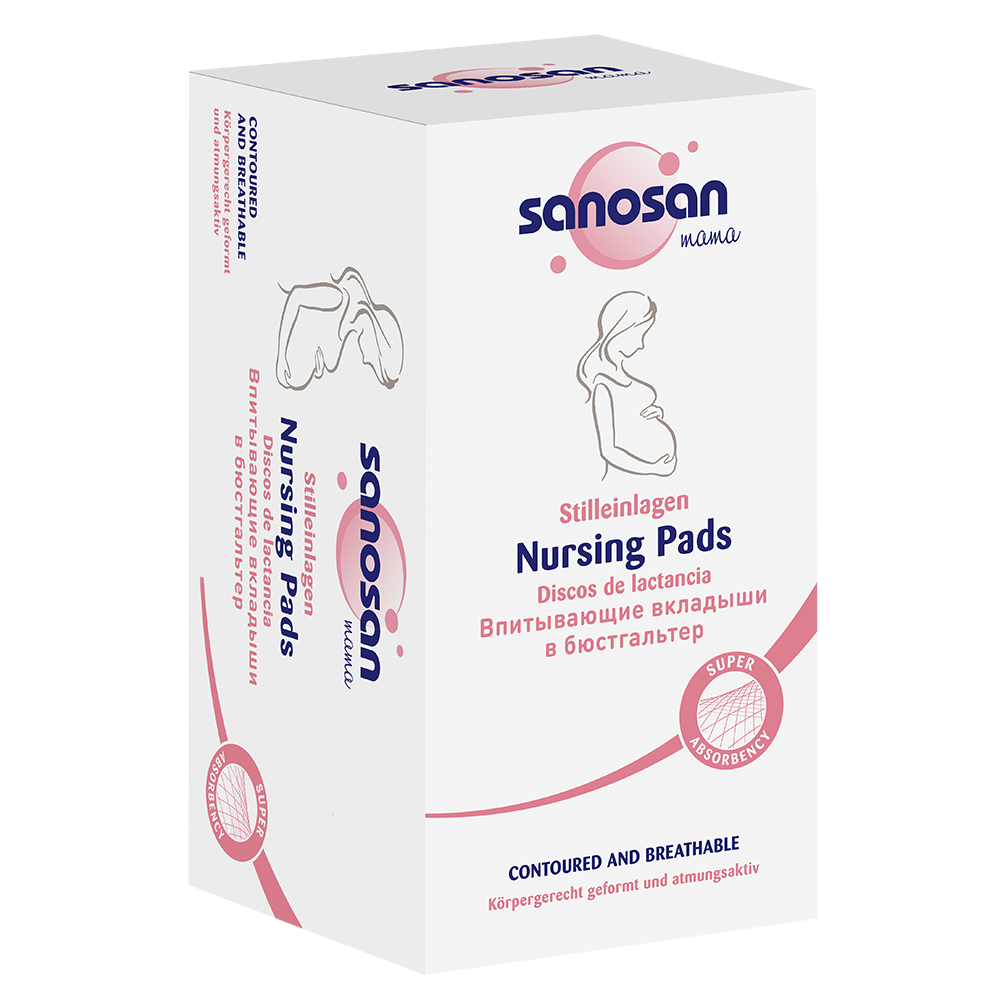
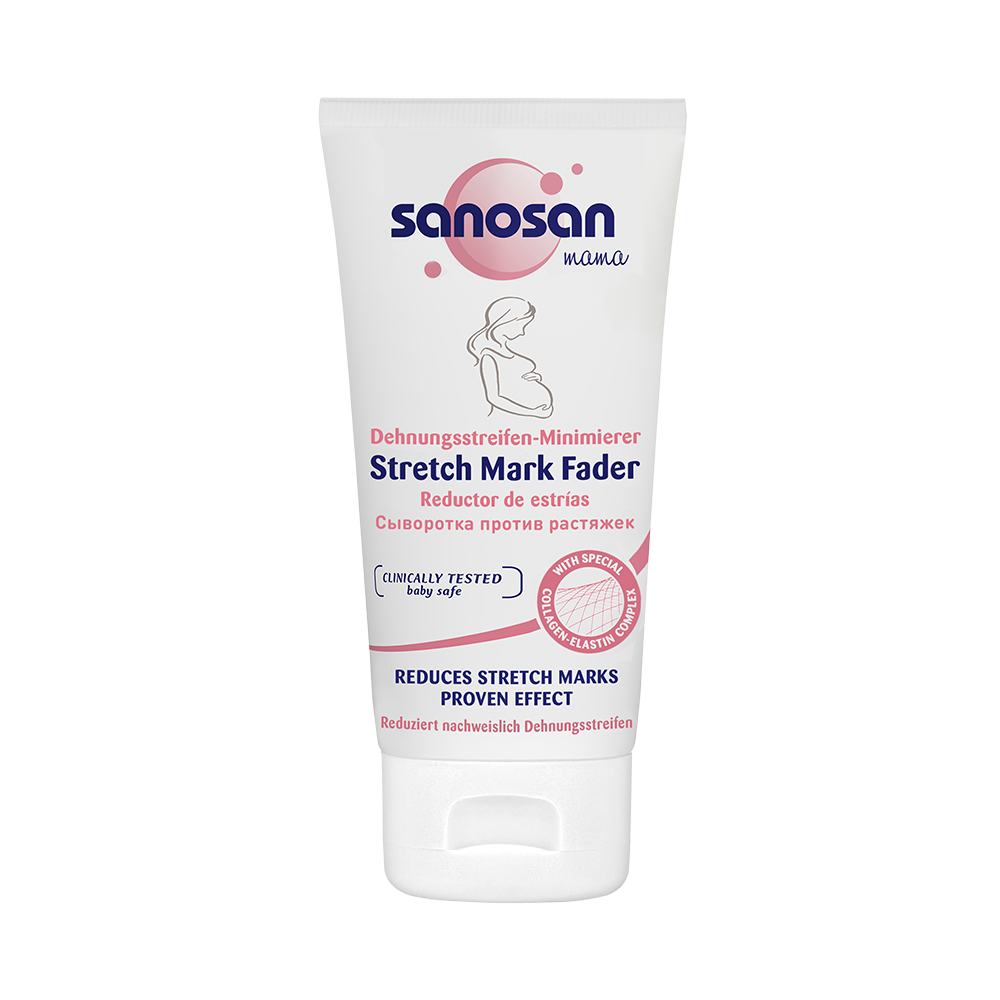
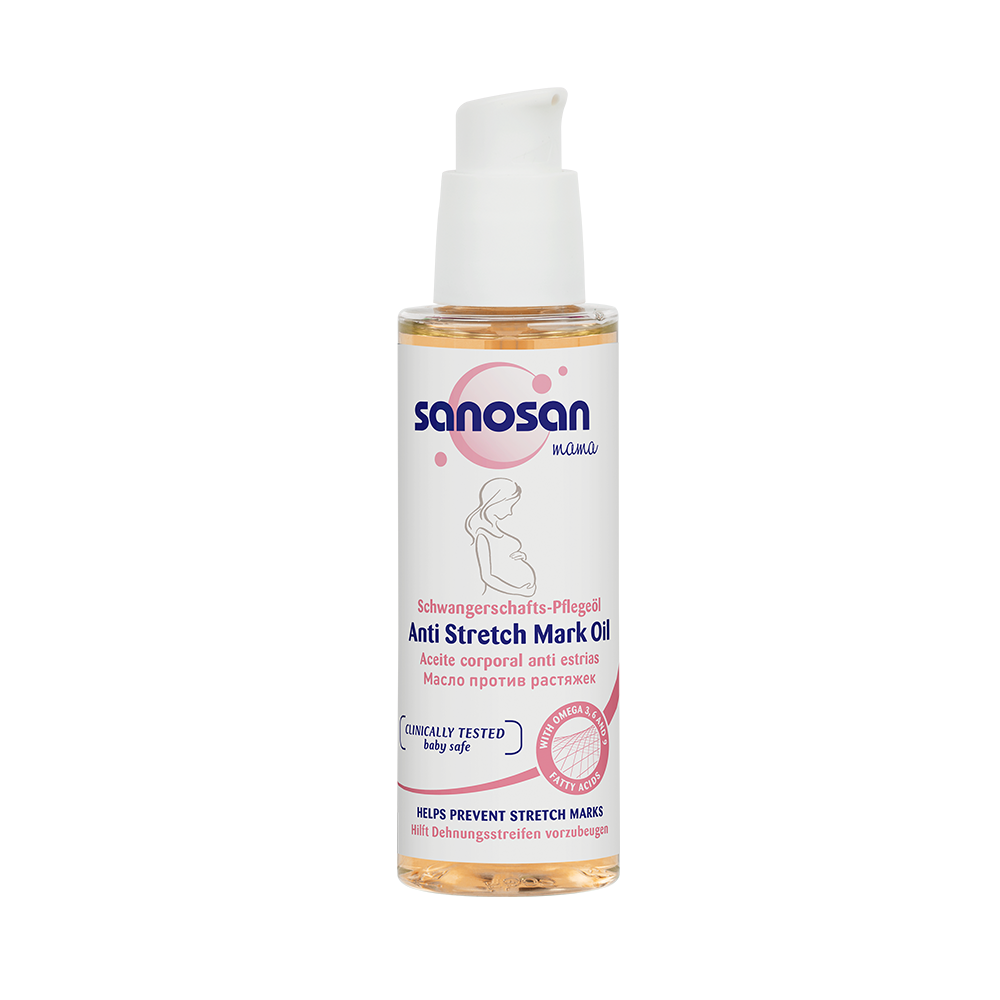
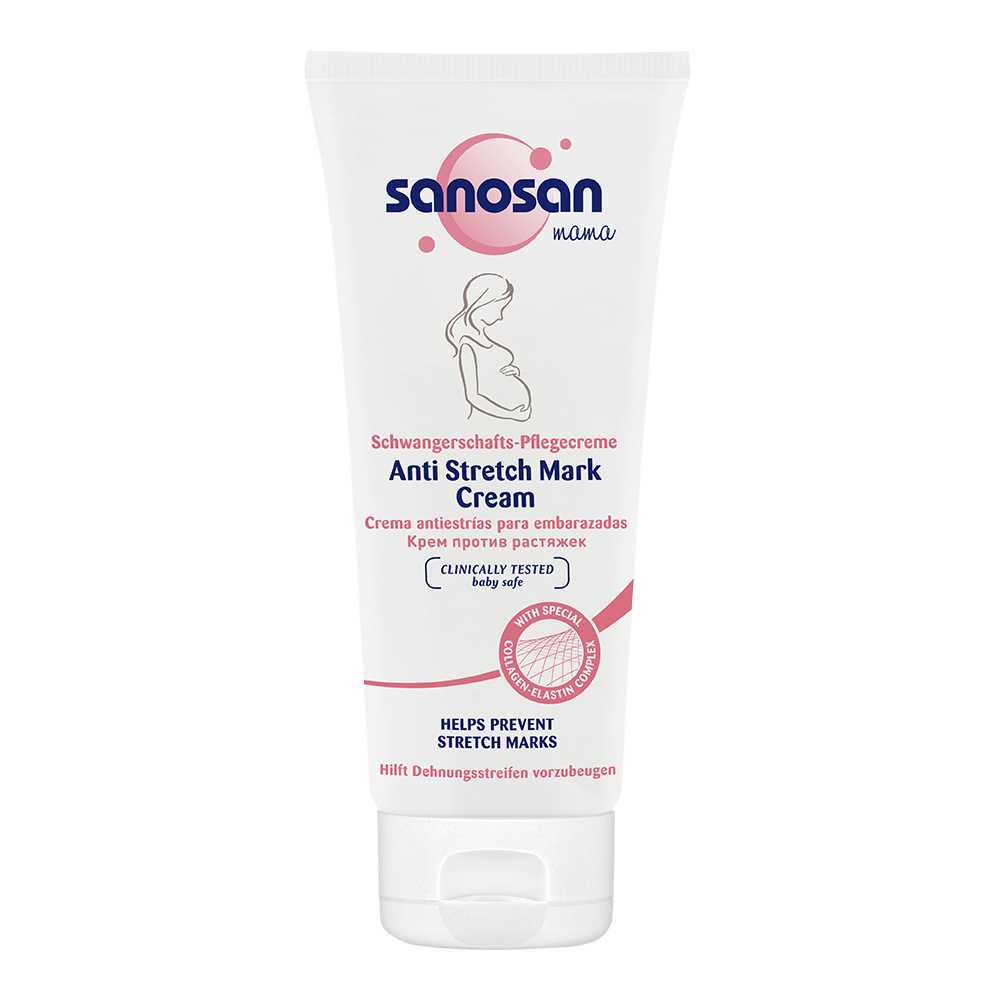

Comments (0)